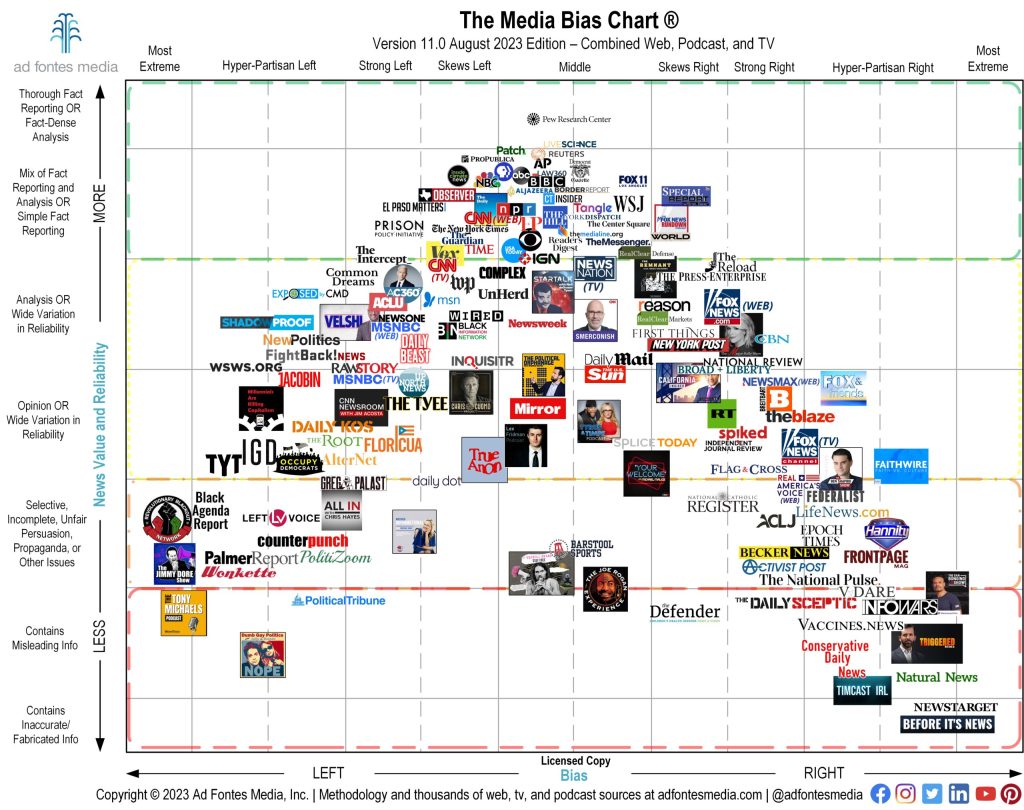

Politifact– PolitiFact rates the accuracy of claims by elected officials and others who speak up in American politics.
Fact Check– They monitor the factual accuracy of what major U.S. political players say in the form of TV ads, debates, speeches, interviews, and news releases.
Open Secrets– tracking money in U.S. politics and its effect on elections and public policy. Open Secrets are the best source for discovering how much and where candidates get their money. They also track lobbying groups and whom they are funding.
Snopes—Snopes has long been the definitive Internet reference source for urban legends, folklore, myths, rumors, and misinformation.
Poynter Institute—The Poynter Institute is not a fact-checking service. It is, however, a leader in distinguished journalism that produces only credible and evidence-based content.
Truth or Fiction– Very similar to Snopes. They tend to focus more on political rumors and hoaxes.
Fact Checker by the Washington Post– Their fact checks are excellent and sourced; however, their bias is reflected in the fact that they fact-check right-wing claims more than left.

Check About and About Me pages: Clicking on or investigating authors' names to consider their credentials in context should be a regular part of the research journey.
Interrogate URLs: We see quite a bit of domain manipulation these days. For instance, what looks like an .edu domain, followed by .co or “lo,” is likely a fake or deceptive site. If you are seeing a slightly variant version of a well-known URL, do a little investigating.
Suspect the sensational: When we see something posted that looks sensational, it is even more important to be skeptical. Exaggerated and provocative headlines with excessive capital letters or emotional language are serious red flags.
Go back to the source: When an article mentions a study, go directly to the source and check its bona fides as well.
Go back to the story again (and again): When was the story written? What is its context? Breaking news will continue to break. Early reports are built from limited information, so you’ll want to watch a story grow into a fuller picture.
Triangulate: Try to verify or corroborate the information from multiple sources, including traditional media and library databases. You can rule out the hoaxes by checking out sites like the nonprofit nonpartisan FactCheck.org or popular sites like Snopes.com.
What exactly are you reading?: Even when you find yourself in a traditional news site, identify what type of writing you are reading. Is it news reporting, a feature story, an editorial, work by a guest blogger, a review, an op-ed, a disguised ad, or a comment?
Check your search attitude and biases: Is your search language biased? Are you paying more attention to the information confirming your beliefs and ignoring evidence that does not?
Use a little energy: Have you satisfied or done your due diligence in seeking and validating the best possible sources across media sources?
Be suspicious of pictures!: Not all photographs tell the truth or unfiltered truth. Images are typically edited or processed, but sometimes they are digitally manipulated. With the emergence of AI, some images are born digital. A Google reverse image search can help discover the source of an image and its possible variations.